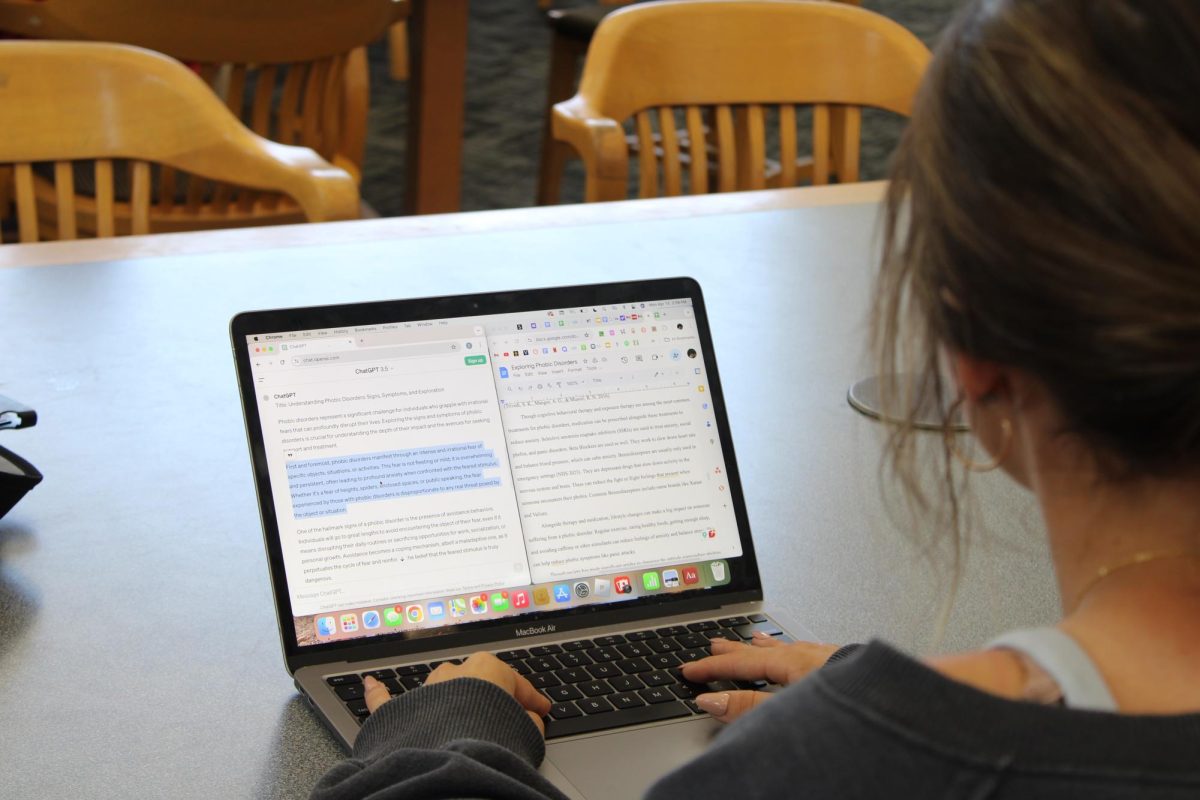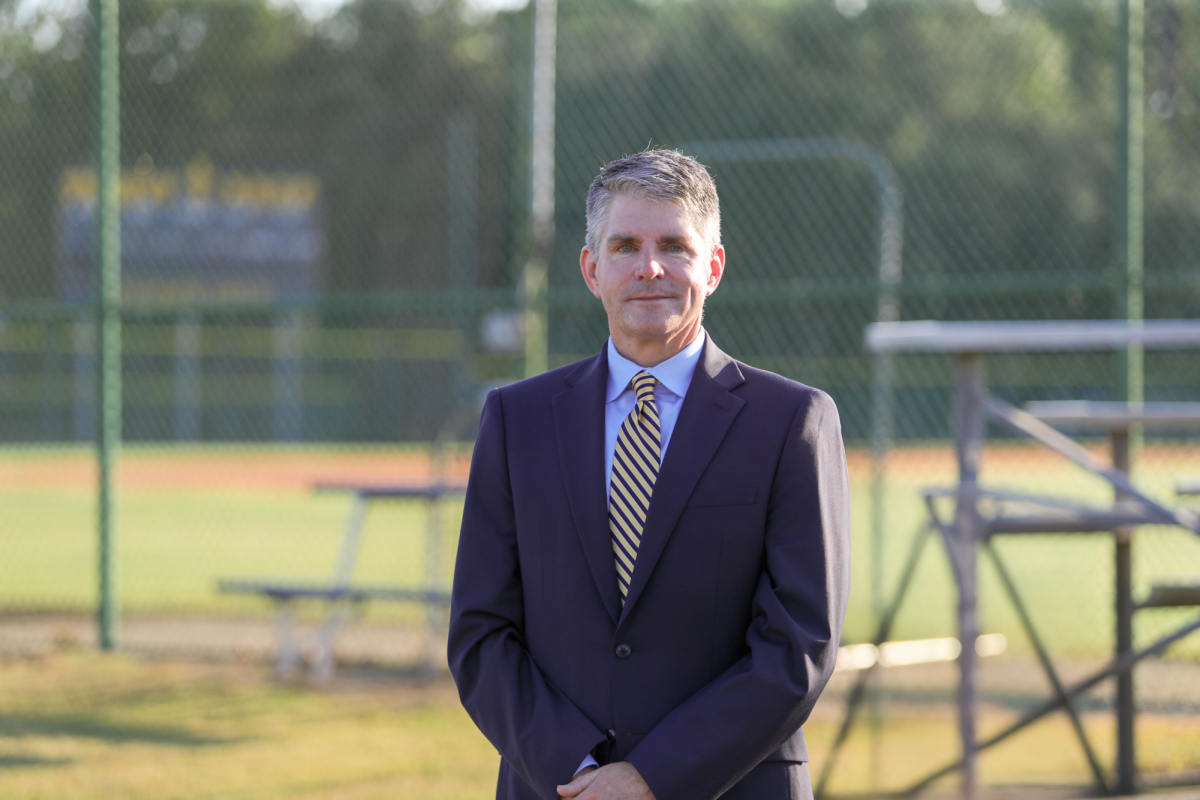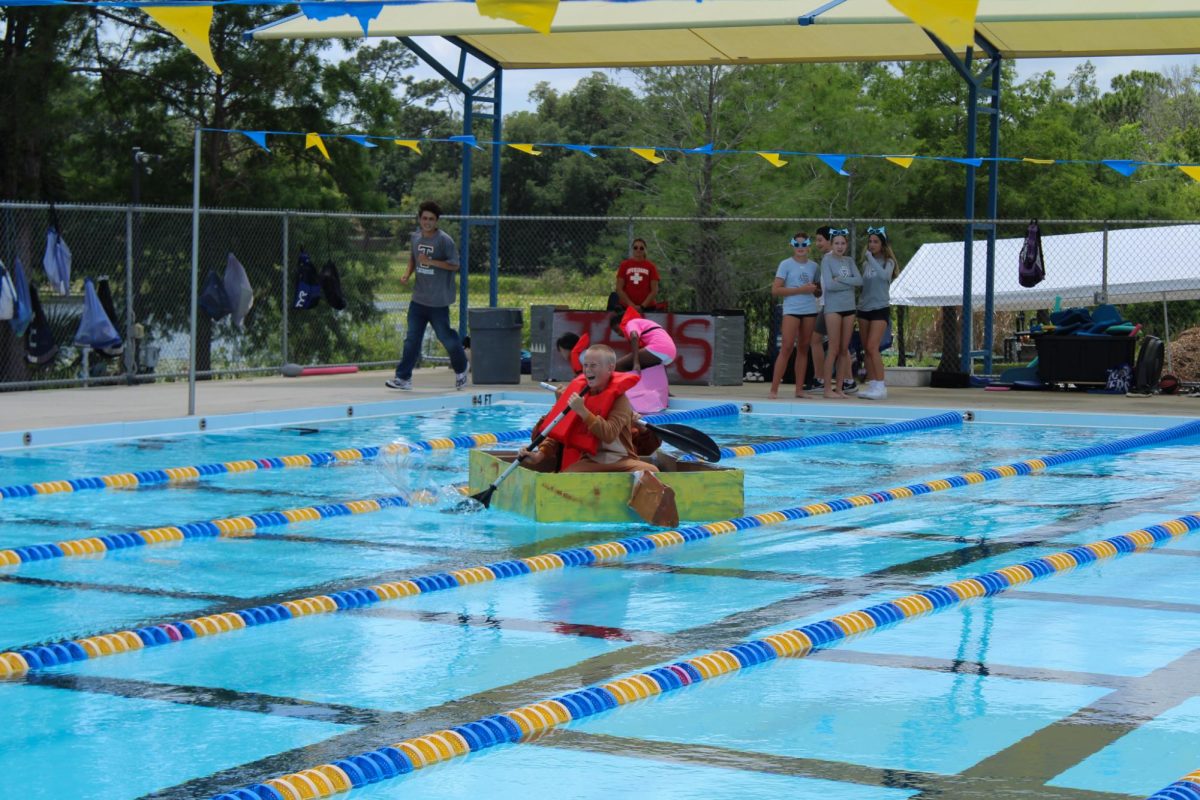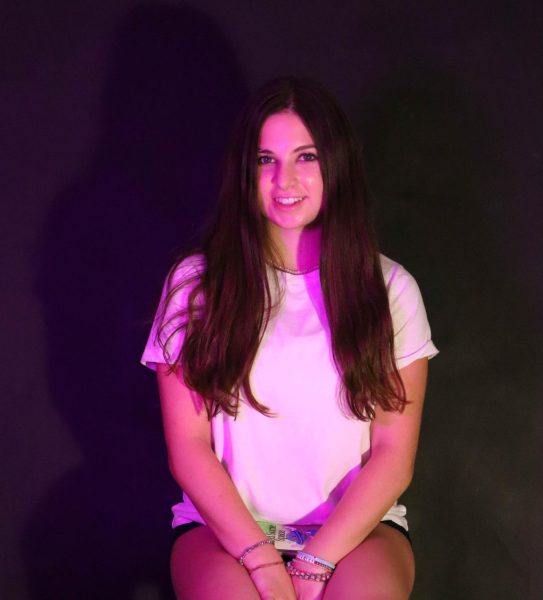A student excitedly shows their latest creative writing piece to a friend, who looks it over. The sentence structure is spectacular. The punctuation is perfectly placed. The word choice is wondrous. Everything seems perfect — too perfect.
They’ve been caught. And this student, who asked to be recognized under a pseudonym, Sam, for privacy reasons, is not alone. According to a June 2023 survey conducted by the standardized testing company ACT, 66% of high school language arts students nationwide used artificial intelligence (AI) in some capacity last year.
Since the launch of OpenAI’s ChatGPT in November 2022, this technology has taken society by storm, leading many to question its impact on the education system. And while every department has been forced to adapt, no subject stands to gain or lose more in this new world than English.
AI has had a foot in the writing process since long before ChatGPT stepped onto the scene. Longstanding tools such as spell-check as well as more modern aids like Grammarly have become ubiquitous in online writing. To AP English Literature teacher Dr. Robert Boerth, these tools can definitely help improve one’s writing skills when used attentively.
“My hope is that with tools like even the spell-checker or with Grammarly, you notice a pattern where, ‘OK, I keep misspelling this word,’” Boerth said. “I think eventually you do pick up on how to spell the word correctly. And I think also with Grammarly, if you notice that ‘Oh, there is this regular punctuation mistake where I’m using this inappropriately,’ that you would ideally start picking up on what the rule is there.”
These possible benefits have been greatly augmented by the recent boom of generative AI — tools that can produce original, thoroughly developed content from just a user prompt — such as the infamous ChatGPT.
“A lot of us use it to help us learn, to help us get ideas, because the biggest wall you have to jump over when you’re writing an essay or something is getting the idea in the first place,” said another Trinity student, who also asked to remain anonymous and will be referred to as Greg. “And when it comes to ChatGPT, you just type it in, and boom, you have ideas and you start writing. It makes the process so much more streamlined. I love it.”
Middle school English teacher Ann Skippers also sees the potential strengths of AI. She believes it can be an asset to human thought — if applied responsibly.
“It can generate amazing products for you, but you have to be willing to review the work and then adjust it,” Skippers said. “If it’s used as a tool instead of in place of, I think there’s a lot of benefits. It can stretch your thinking … it can generate so many ideas that people aren’t necessarily thinking of right now.”
As this technology has grown in popularity, it has also diversified to provide benefits in a myriad of genres. For example, programs like Verble are designed specifically for writing speeches, a daunting task for many students. Other assistants, such as Microsoft’s Copilot, are equipped to help out with poetry. These tools could allow students to experiment in genres they are not as comfortable with, opening up new paths for blossoming writers.
However, there is no clear line as to where the use of these tools becomes problematic. Some scholars, such as North Carolina State University (NCSU) English professor Chris Anson, believe that using AI for one’s writing in any degree is detrimental to education.
“Especially in educational settings, the reciprocity of writing and thinking is essential for intellectual development and higher-order reasoning,” Anson said in a March 2023 article published by NCSU. “Asking an AI-based system to write an essay on a topic that the [human] writer has not yet explored significantly subverts the thinking and learning process.”
This is particularly important to Skippers, whose students’ writing is still in the formative stage. She worries that the overuse of technology could take away valuable opportunities to hone their skills and inhibit them from fully developing their voices.
“I think [my students] have a lot to say, and I want them to learn how to communicate,” Skippers said. “That’s my biggest thing. It’s not standing in the way of them cheating or finding a work-around. It’s more the fact that they are diminishing their own capabilities.”
These concerns become a reality for those who fall back on tools like ChatGPT to complete entire assignments, such as the aforementioned student who used the bot to write a full introductory paragraph for one of their papers.
“I felt very guilty because I knew I could’ve easily done this by myself if I’d given some effort and time,” Sam said. “But I chose not to and chose the lazy method, which could end up getting me caught and getting in trouble.”
Luckily, before submitting the paper, they wisely decided to rewrite it themselves at the urging of their friend, who recognized that the writing was too different from their typical style. This shines a light on another crucial aspect of AI: it lacks the ability to replicate human creativity.
Generative AI tools like ChatGPT do not come up with responses completely from scratch; they look at content in the public domain related to the task at hand and use that to formulate something new. Thus, they are confined to certain patterns and cannot think outside the box as a human might.
“Even if you tell [ChatGPT] to do it as creative[ly] as possible, it always sounds like a research paper because it has the structure that it always uses,” Greg said. “I like to make metaphors, similes, a lot of rhetorical strategies, and ChatGPT doesn’t really do this. It just gives you facts. It gives you a structure. It gives you something rigid that sounds correct, but not necessarily creative.”
Because AI-produced writing is a hodgepodge of information without a mind to properly communicate the material, it has a very distinct voice — or lack thereof. The drab writing style simply does not live up to authentic human work. And worse, it undermines the idea that art is uniquely human.
Senior Alex Matusiak, co-president of Trinity’s Film Festival club, holds a moral opposition to AI for this reason. He believes work produced by AI takes away from the sanctity of human expression.
“People who rely on AI for their creative pursuits shouldn’t be pursuing anything creative,” Matusiak said. “I like AI in things that don’t deal with creativity. I’m all for AI for any solutions to problems that we have. But creativity isn’t a problem that needs to be solved.”
Matusiak is far from alone in this sentiment. This issue was at the forefront of the Writers Guild of America’s five-month-long strike against Hollywood last summer. In an agreement reached in late September, the film titan conceded that AI was not welcome in the screenwriting space, prohibiting its use in writing scripts or producing source material.
While such a consensus has yet to be reached in the educational world, some teachers have found ways to incorporate AI’s drawbacks into their curricula. Boerth agrees that though AI writing can meet basic requirements, it isn’t a suitable replacement for human writing. To him, this is a great teaching opportunity.
“I would say that a lot of times ChatGPT gives you proficient writing, but it’s not necessarily always knocking the ball out of the ballpark,” Boerth said. “And so giving [students] an example of OK writing but writing that could be improved, and using that to get students to think about revision, what could be done to do it better.”
Given that ChatGPT is still less than two years old, there is much to be learned about how, or if, it should be incorporated into writing. Skippers feels it must be further explored before a proper decision can be made.
“I think we need to understand more of how to use it as a tool before we can rely on it as something to be integrated into the writing process,” Skippers said. “And if we don’t know how to use it properly as a tool, then we’re going to misuse it and we’re not going to communicate clearly.”
With how far technology has come over just the past few years, it’s clear that AI’s capabilities will only continue to grow, and with them, its impact on young writers. And the burden ultimately lies with teachers to navigate this with their students.
“I think one of the challenges for teachers is just going to be how to teach writing alongside ChatGPT and do it in a way that students would be developing the skills that they need,” Boerth said. “But also, I think we need to be doing it with the idea that in the world today, it is going to be the world of generative AI.”















